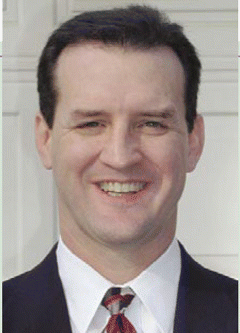Transitioning to a cash-only practice can increase your income-and your career satisfaction
Explore This Issue
June 2006As insurance reimbursements decline and the administrative tasks associated with third-party payment increase, some physicians choose to move to a cash-only office, where patients pay at the time of service. Two physicians who treat otolaryngology conditions shared their experiences with this approach with ENToday.
A Slow Shift in Louisiana
Gerard J. Gianoli, MD, an otolaryngologist-head and neck surgeon and an ENToday board member, worked at Tulane University School of Medicine until 2000 when he joined a two-doctor private practice in Baton Rouge, La. After he made that transition, he and his partner looked over the whole financial picture. They evaluated which insurance companies provided the lowest reimbursement and the highest grief factor, said Dr. Gianoli. And then we just started cutting them out.
In November 2005, they ended their last insurance contract; it had also been one of their largest contracts. The decision was driven by several factors. First, the insurance company had started to become more difficult to deal with and started to deny claims for services or procedures that they had routinely paid for in the past. Second, in the aftermath of Katrina, health insurance companies were not allowed to drop individuals because of unpaid premiums, but the companies were only liable for 50% of what they would normally have paid for their services-and the prompt payment law was suspended in Louisiana. That meant, said Dr. Gianoli, that instead of recovering 50 cents on the dollar and being paid within 30 days, they would get 25 cents on the dollar and have to wait as much as six months. They decided it wasn’t worth it and canceled the last contract.
Anyone can (move to a cash-only system)-it’s just a matter of whether they want to do it. Laying it on the line and saying, this is how much my services are worth, is a little scary. – Gerard J. Gianoli, MD
At that point, the office was already at about 60% cash-only basis. We haven’t noticed a monetary difference, probably because the change was so slow, he said. In fact, after the team opted out of Medicare a couple of years ago, their income increased because those appointment slots were filled with patients-Medicare or other-who were willing to pay for services.
Transparency with Patients
The office tells patients up front what their charge will be. If it is not clear beforehand what a patient will require, the office provides a range so that there are no surprises. The patients pay at the time of service and are given their Medicare or Medicaid forms so that they can apply for their own benefits. The interesting thing with that is that the patients are getting reimbursed at a higher rate than we were getting, said Dr. Gianoli.

Leave a Reply